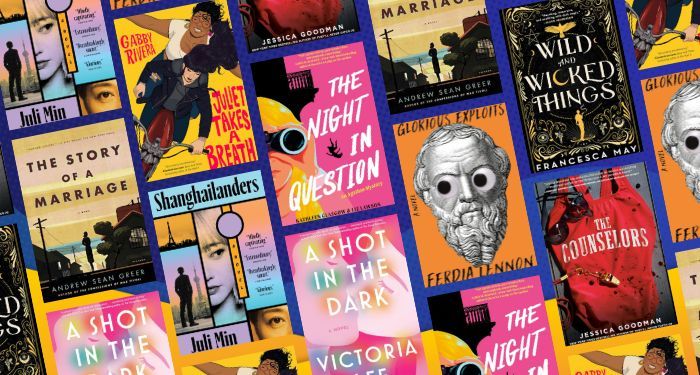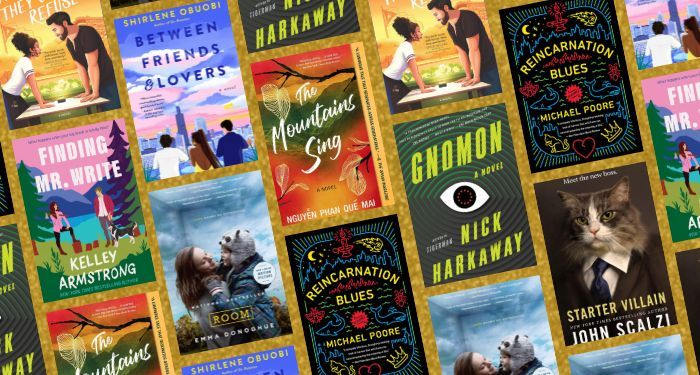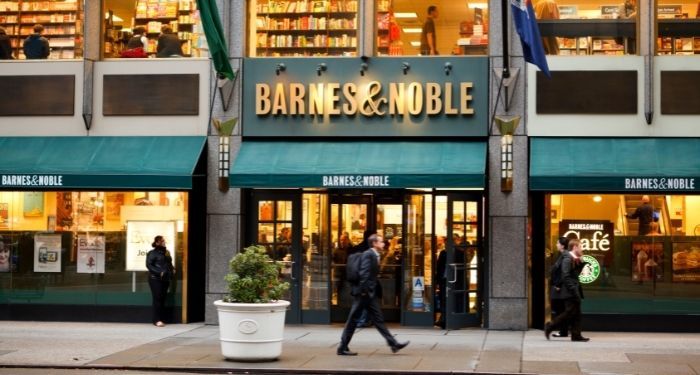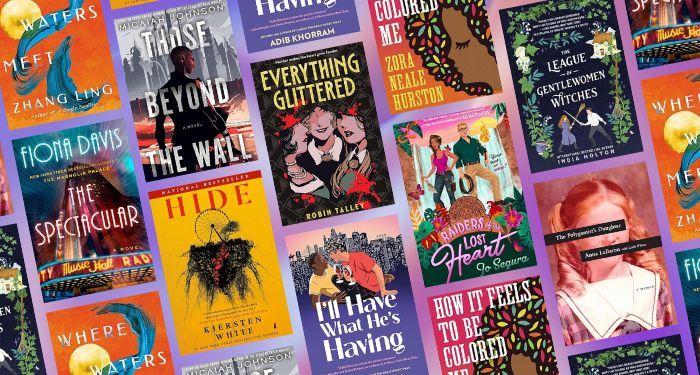How to Celebrate National Library Week
Every year, the American Library Association sponsors a week-long celebration of libraries. This year, it’s being held from April 7 to 13, and though we’re at the tail-end of the celebration, this is still the perfect time to remember to be grateful for libraries and library staff. It’s easy to take community staples, like libraries, parks, and schools, for granted. With this one week each year that the ALA designates, we’re reminded to take action for our libraries, fight censorship, and appreciate library workers. Please don’t let that be an excuse for you to only take action, fight censorship, and appreciate library workers once a year. They need to be supported all year long, so they can continue to serve the community.
When did National Library Week start and where did it come from, you may wonder. Let me explain. In the 1950s, there was a concern that Americans weren’t reading enough, instead spending their time listening to the radio, watching TV, and playing musical instruments. The American Library Association and American Book Publishers formed a nonprofit called the National book committee in 1954.
In 1957, the National Library Week idea was born, and the next year the first National Library Week was celebrated with the theme: “Wake Up and Read!” The ALA has continued observing the week ever since, even after the National Book Committee disbanded in 1974. At that time, the ALA took on full sponsorship responsibility. If you’d like to read a more detailed history, you can here.
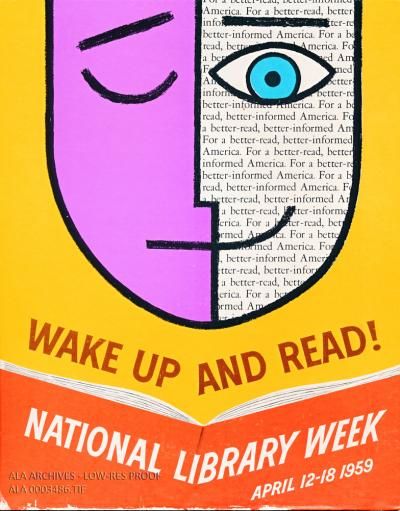

THEMES
The theme of this year’s National Library Week is “Ready, Set, Library!” The idea being that, in an internet age, the library is a place where people can find what the internet can’t give them: community, connection, and a place to learn. And not just from the books, either. Libraries hold workshops and clubs with local experts. They host author talks. They have conference and study rooms available for fellow enthusiasts, tutors and students, and small groups to meet. This way, patrons will be able to build relationships with other people in their community. No matter what stage of life you’re in, the library has something for you. It has something for everyone.
Also, the ALA starts National Library Week with the release of the State of America’s Libraries Report for 2024, which includes the list of Top Ten Most Challenged Books of 2023.
And, four of the seven days of National Library Week have their own additional themes:
Monday, April 8th: Right to Read Day is a day for readers and all library lovers to take action to defend and celebrate the right to read. This day is reading specific. Book Riot writers — especially Editor Kelly Jensen — have been writing how-to guides on supporting libraries and fighting censorship for years, and released How to Fight Book Bans and Challenges, if you’re looking for all the good stuff in one place.
Tuesday, April 9th: National Library Workers Day is a day for all library lovers to recognize the invaluable contributions library workers have made.
Wednesday, April 10th: National Library Outreach Day (formerly National Bookmobile Day) is a day to celebrate not just the outreach efforts of libraries, but also to recognize library staff for meeting their patrons and community members where they are.
Thursday, April 11th: Take Action for Libraries Day is a day to advocate and rally for libraries, which I’m going to get into more detail on below.
HONORARY CHAIR
Every year, the American Library Association chooses someone to act as the honorary chair of National Library Week. This year it’s Meg Medina, the National Ambassador for Young People’s Literature and a Newbery and Pura Belpré-award winning author. Meg Medina writes for all ages, and her middle-grade Merci Suárez Changes Gears won a Newbery Medal, and also made me cry. Highly recommend.
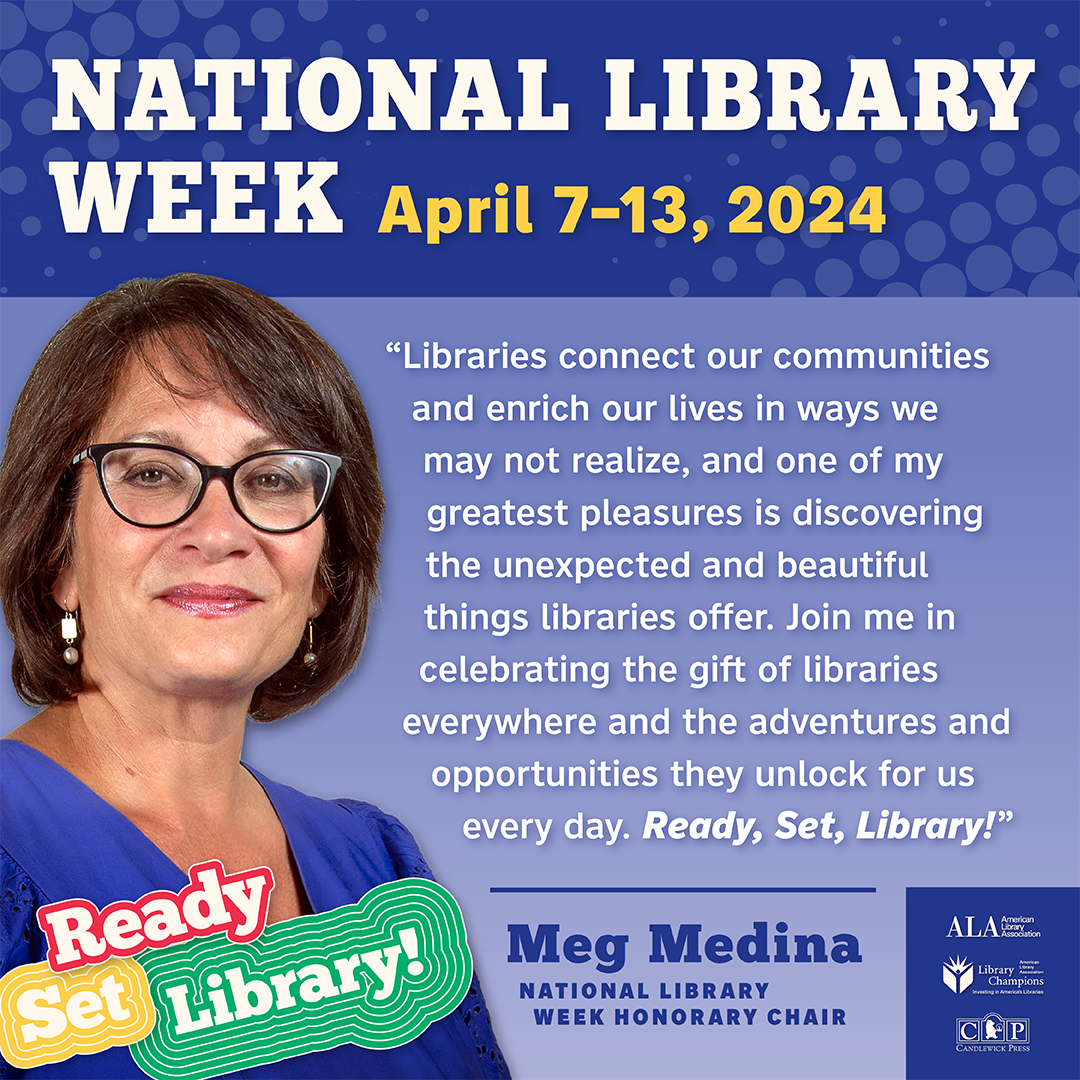

WAYS TO CELEBRATE
Visit your library. Really. With Libby, Hoopla, and Overdrive, it’s easy to be a library patron without actually setting foot in a library. Going to the library exposes you to displays, books, librarians, and programs you otherwise would have missed. Checking out materials through the apps absolutely helps, too. There’s something about the smell and quiet hush of libraries that can’t be experienced anywhere else.
Write your local and school librarians thank-you notes. Like most public service jobs, working in a library can be frustrating and thankless. Often, it can feel like you’re working as hard as you can, for very little money, with few resources and no one even notices. Of course, we believe in the work we do. That’s why we do it. But hearing appreciation from patrons is a small act that goes a long way. Many librarians aren’t able to accept gifts from patrons at all, so a sure way to brighten your librarian’s day is with a simple note.
Fight censorship. Fighting censorship ensures that your library stays funded and staffed. Stay informed about what is happening with censorship around the country by subscribing to the Literary Activism newsletter. Buy How to Fight Book Bans and Challenges and do what it says.
Find out who your local representatives are and contact them about your library. Local politicians, especially, can have a big hand in shaping library budgets and funding. Be specific. Tell them which programs and which library workers you love.
Educate yourself on the realities that libraries are facing, so you are able to talk to politicians and community members from a place of authority. Many Book Riot writers have written about this — there’s everything from how to support your library in the wake of rising fascism to a trauma resource guide for library workers and supporters.
Leave positive reviews. Many libraries have pages on Google, Yelp, Facebook, and more where patrons can leave reviews. So often, people only leave reviews when they want to complain. Writing a positive review for your library really helps them. You don’t even have to leave your couch to do it. Go ahead, leave them a five-star rating.
Participate in programming. Patrons will suggest programming that they wish the library had, but then when it comes time for that particular event, no one shows. Going to the programs that your libraries have is helpful because attendance statistics are a way that libraries can “show their work,” so to say. The more attended an event or program, the more likely that it will get funding to happen again.
I hope these suggestions have given you some ideas on how to get involved. Libraries improve communities. They are safe spaces for everyone. They provide services to people who need help. More than that, they provide enrichment for anyone who wants to participate. Libraries deserve to be celebrated.



